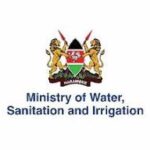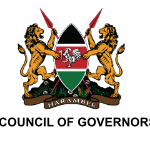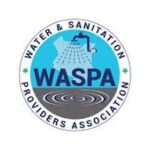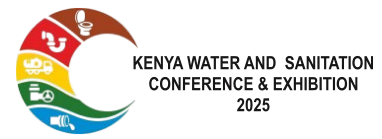Day 1 (24th June 2025)
1.Amplifying the voice of adolescent girls to improve school attendance during menstruation in Meru, Kenya. L. M. Kirimi; L. Wood,
2.Promoting gender equality in human capital development. A case study of Murang’a Water and Sanitation Company. J. Kinuthia; D. Thugu; A. Nganga
3.Capacity building and research in Non-Sewered Sanitation; A glimpse at the terrain. D.S. Kiogora; Riungu J N
4.Need for sewer education to the public to reduce operation and maintenance costs of sewer. M. B.Wanjiru
5.Empowering schools through the “Toilets Making the Grade” Competition. Al.Hoehne; S. Kasongamulilo; S. Schrader
6.Addressing Spatial Data Gaps in Water and Sanitation through Capacity Strengthening. C.Cheruiyot; E.J. Atieno, F.C. Onyambu
7.Building Climate Resilience in Water Service Provision: A Case of Meru Water and Sewerage. P. Mugendi; Riungu D. K.
8.Catchment Management: An Important Part of Water Supply- KIWASCO Case Study. G Odero; E. Muga.
9.Implementing Nature Based Solutions in Mitigating Impacts of Climate on Water Resources, irrigation and Sanitation. G. Mugambi
10.Ensuring Safely Managed and Adequate Water for Improved Nutrition: Beyond Mere Access. D. Achieng; I. Kiplagat ; E.Macharia ; M. Karumba ; M.Opondo; R. Sitati ; P.Kipkorir; J. Kathenge ; D.Mulwa; R.Ngugi ; E. Onsomu ; J.Gatungu
1.Overcoming Sanitation Challenges in an Urban Slum: A Case Study of Mbayani Township, Blantyre. F. Nyamwezi
2.Can improved access to handwashing infrastructure and soap change behaviour? Findings from a randomised control study in a refugee setting in Kenya. D.Akeyo; V.Shah, I.Tumwebaze, N.Nganga, G.Kiragu, S.Philips, S.Simiyu
3.Closed Loop Sanitation Project at Ezra Gumbe Primary School, Kisumu. J. Obunga; B.Orwa
4.Pit Latrine Emptying Innovations and Service Delivery Efficiencies in Kisumu. C. Oluoch; E. Mariita; P .Omondi; C. Njehu
5.Investigating On-site Conversion of Feacal Sludge using Black Soldier Fly Larvae: Case Study. J. Riungu; Mumali A., Kithinji D.K; Karanja S; Oyoo V.
6.Evaluating simplified sewerage in sub-Saharan Africa. M. Jackson-Koufie; A.Parker; M.Sule; B.Evans
7.Rhonda’s Simplified Sewer System – Game-Changer for Urban Communities. G. Kabubu; Njung’e, H; Kimani, P
8.SaniTracker: Enhancing sanitation service delivery through digital technology. J.Kimotho
Chair: Meltus Mugomi, Freshlife
SPEAKER: Philip Oluoch, WSUP; Uptake of technologies in the Kenyan Water Sector
SPEAKER: Mohamed Shurie, CEO ,Water Resources Authority
Panelists:
Lavuun Verstraete, Programme Manager – R-WASH UNICEF- Eastern and Southern Africa Regional Office
Mr. Samuel Kinyanjui, Managing Director, WaterKiosk Africa
Mamo Boru Mamo, EBS, Director General, National Environment Management Authority (NEMA)
Zedekiah Otieno, Chief Operating Officer, Alpha Systems
Eng Ian Thande, Director Land Reclamation, SDI, MWSI
Salgia Noor, Nakuru Water and Sanitation Company
Peter Koech , Manager water and Sanitation services, WSTF
Vicky Betty Chepkorir, Director Projects, Programs and Strategic Initiatives, State Department of Environment and Climate Change, Ministry of Environment and Climate Change
1.Impact of Accelerator Programmes on WASH Enterprises in Kenya. N.Greene; M. Nyaruai; P. Omondi; J. H. Friede; S. Malik
2.Community-Driven Models for Sustainable Rural Water Treatment Systems. N. Mutugi
3.KIWASCO’s Journey to Financial Sustainability through Smart Prepaid Metering Technology. K. Kitindah; M. Ogutu
4.Leveraging Emerging Technologies for financial Sustainability in KIWASCO. T. Wadenya; S. Ananda
5.Empowering Local Businesses and Enhancing Sanitation: PuPu Pump’s Impact in East Africa. A.Jagongo
6.Scaling Sanitation Enterprises: Addressing Capacity Gaps for Sustainable Market-Based Sanitation in Kenya. E Muchira
7.Some thoughts about harvesting of and making products out of Water hyacinth, using old European experiences. R. Kampf
8.An Adaptive Water Rationing Model for Sustainable Water Distribution in Urban Areas Using Reinforcement Learning. S. Nyutu
1.Models, towards city wide inclusive sanitation in Nakuru. H. Njung’e
2.KIWASCO’s Governance Model for Inclusive and Sustainable Water Connections. B. Ouma; S. Winyo
3.Strong decentralized governance through collaborative action. C. Namale; A.Hohne;
4.Digital Platforms for Water Governance and Decision- Making. H. Mutharu
5.KYWP MMUST Chapter WASH awareness improving water access and hygiene through community engagement. H. M. Oteko
6.Community Led Initiative (CLI) _ A Strategic Approach to Sustainable Non-Revenue Water Management. B. Ondego; C. Odero
7.Community Mapping of Water Sanitation and Hygiene Access for Sustainable Urban Planning. E. Otieno; F. Onyambu; C. Cheruiyot
1.Leveraging Electrical Conductivity (EC) as a Versatile Tool in Water quality Monitoring. E. Okoth
2.Fusing Space and Sensors: Predicting Turbidity for Smarter Water Treatment in Kisumu. B.Ouma; K. Kitindah; V. Akinyi
3.Application of GIS and Remote Sensing in Site Identification for Managed Aquifer Recharge. S. Gatobu
4.Stable Isotopes Applications for Water Resources Planning; Understanding Tiwi Aquifer. E. Ireri
5.HDPE Structured Wall Rainwater Recycling Tanks for High Volume Storage and Reuse of Rainwater. S. Thomas; V.Samaras; J. Ndiema
6.Green-Energy, A Sustainable Source of Energy for The Water Sector; Case Study for Kikuyu Water Company. P. Ng’ang’a
7.Harnessing Solar Energy for Climate-Resilient Water and Case Study from Busia. C. Oduori
8.Enhancing Climate-Resilient Water Resource Management through Conservation Initiatives: A Case Study of THIWASCO’s Watershed Investment. E. Ngugi
9.Climate change adaptation and mitigation through catchment protection: A case of River yala, Water fund. M . Mariga
Chair: Elly Ochere, Manager Research, Planning and M&E, WSTF
SPEAKER 1: Kenya Water, Sanitation & Hygiene (K-WASH) Program. Eng Jacob Mwakio, MWSI
SPEAKER 2: WSPs Performance Improvement Action Plans (PIAPs). Eliud Lelerai, Manager, Monitoring and Inspectorate, WASREB
Panelists:
Loice Mutua, Chief Officer, Water Tharaka Nithi county
Anthony Njaramba, CEO, WASPA
Thomas Odongo, MD, KIWASCO
Eng Felix Mumba, Director Water and Energy, Tana River County Government
Dr. George Wainaina , Group Leader, Eawag, Swiss Federal Institute of Aquatic Sciences and Technology
Meltus Mugomi – Director Regional Expansion Africa (Fresh Life)
Representative from AFDB or WSTF (To be confirmed)
Mr. Alex Manyasi – Policy Engagement Manager, APHRC
Representative from Nakuru Water and Sanitation Company
Representative from Open Capital
1.Exploring Vulnerability in Accessing WASH Services in Nairobi’s Informal Settlements. J. Riungu; Karani C.K; Kirimi, L
2.Beyond provision: Sanitation practices and access challenges in Informal settlements. I. Chumo ; C. Kabaria; B. Mberu,
3.Poor Urban Planning Effect on Non-Revenue Water Management-In Kisii Town. C. Susu
4.Challenges Faced by Water Service Providers in Policy Implementation. A. Nganga; N. Karanja; J. Caleb; F. Macharia
5.Enhancing Coordination for Accountability and Sustainability in Water Resources Management. J. Kones; E. Kivuva: T. Barasa
6.Strengthening Governance through Utility Transformation: A Policy Innovation Approach. E. Ngugi
7.Interplay of service delivery models, towards city wide inclusive sanitation in Nakuru. H.Njung’e



Hotel/Accomodation Enquiries: +254 722 652 470
Email: info@kenyawatsan2025.org

June 23 -27
Pride-inn Paradise, Mombasa

